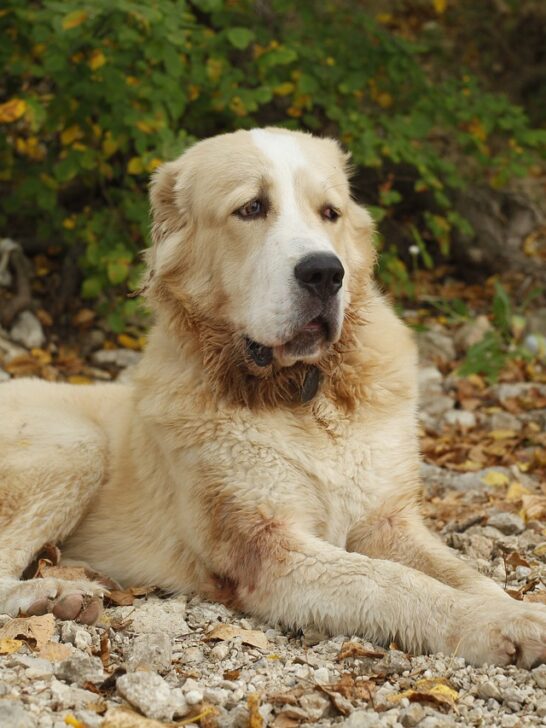Can You Catch Norovirus From Your Dog? The Ultimate Guide To Dogs & Stomach Viruses
When it comes to keeping a happy and healthy household, the importance of hygiene cannot be stressed enough.
If you’re new to owning a dog, you might be curious to know: Can you catch a stomach virus from a dog?
In this article, I will explore whether you can catch a stomach bug from a dog, including the norovirus.
Keep reading to find out more.

The name for a condition that is passed from people to animals or vice versa, and from one animal to another is known as ‘zoonotic’.
As a general rule, you should always ensure that you are following proper hygiene practices around your dog, as this will minimize the risk of you developing an illness from your dog.
A lot of this comes down to common sense, but in short, this means you will need to regularly wash your hands after coming into contact with your dog, and ensure that they are not licking your face.
Failure to follow proper hygiene protocols could result in something more sinister, as I go into further detail below.
Can You Catch A Stomach Virus From A Dog?
The answer to this question is yes, there are a few illnesses and digestive conditions that you can potentially catch from your dog.
Bearing this in mind, whether your dog appears to be ill or not, it’s fundamental to make yourself aware of these conditions and do your research.
This will ensure that you can take the proper precautions and recognize the symptoms to look out for.
These conditions include but are not limited to:
Salmonella
You might always associate the bacteria, salmonella, with food such as raw chicken.
However, it’s important to know that salmonella is often carried within the body of dogs, and as a result, you can pick salmonella up from your furry friend in a variety of ways.
Salmonella may be present in their saliva, feces and even on their bowls and bedding.
If you catch a salmonella infection, it can cause symptoms such as a fever, diarrhea, cramps and general sickness. To avoid this, never let them lick your face!
Intestinal worms
Intestinal worms are the easiest condition that can be passed from your dog to you.
Intestinal worms of this type shed eggs in large quantities through the feces of the dog, which in turn can go on to infect the soil of your garden and other areas where your dog goes to the bathroom.
Always dispose of your dog’s stools promptly to prevent contaminating the soil, and wash your hands thoroughly afterwards.

Campylobacter
This condition is often present in dogs without making them sick, and can infect their owners through feces. Symptoms can include cramps, nausea and vomiting, as well as bloody stools.
You will need to make sure that you’re being mindful about washing your hands properly and paying close attention to your hygiene protocols around your pup.
Cryptosporidiosis
Cryptosporidiosis is a parasitic infection that is contracted through drinking contaminated water, such as muddy puddles.
People can catch this parasite from coming into contact with contaminated water, food that has been contaminated by a dog from eating it, and dog feces.
Always try to prevent your dog from drinking stagnant water, and make sure that you wash your hands properly after cleaning up their waste.
Risks To Remember When Interacting With And Caring For Your Dog
When caring for your dog, you always need to be taking precautions to avoid coming into contact with these nasty conditions. While some conditions are more serious than others, it’s important to live on the side of caution.
It’s much easier to follow preventive measures than to deal with the fall out if you catch one of these conditions from your canine.
That being said, you should always make sure that you’re disposing of their stools properly and promptly, and are always washing your hands thoroughly.
In addition to this, it is common sense to never allow them to lick your face as there is harmful bacteria in their saliva, and you should be mindful of them drinking stagnant water when you’re out on your walks.
While this might seem like a lot to remember, a lot of it is common sense.
While dogs are man’s best friends, it’s important to be aware of these conditions to ensure that you’re not at risk of catching these conditions.

Can You Catch Norovirus From Dogs?
Norovirus, which causes vomiting and diarrhea, is extremely contagious among humans and is the leading cause of foodborne illness in the US.
While you can catch norovirus from contaminated surfaces and infected people, it is yet to be determined whether dogs play a role in outbreaks of human norovirus as there is little to no evidence to suggest that they are involved in spreading it.
Until more definitive data is found, it is essential that sensible hygiene precautions are always taken around pets.
This should always be a priority to keep in the forefront of your mind, but is especially important when gastroenteritis in either humans or dogs is present in a household.
Always make sure that you and your children are regularly washing your hands!
In Summary
Yes, you can catch a stomach bug from a dog, and there are a few illnesses and digestive conditions that you should research to recognize the signs and symptoms if they occur.
Norovirus is a leading cause of gastroenteritis or stomach flu, but there is little to no evidence to suggest that humans can catch it from dogs.
Until further research is carried out, it’s important that you take the preventative measures and hygiene protocols to ensure that you’re not at risk of developing norovirus or the other conditions that you can actually catch from your canine companions.






























